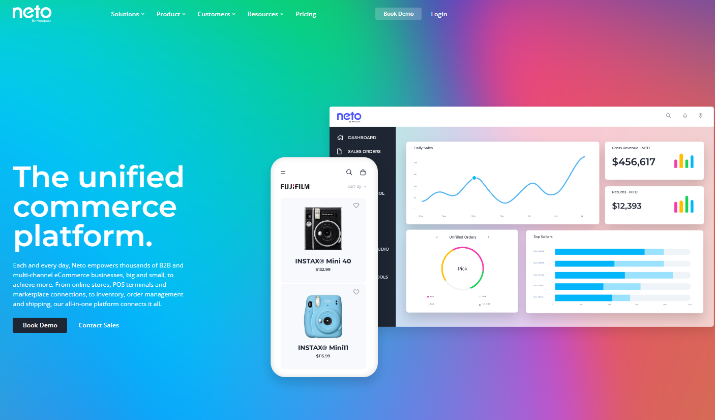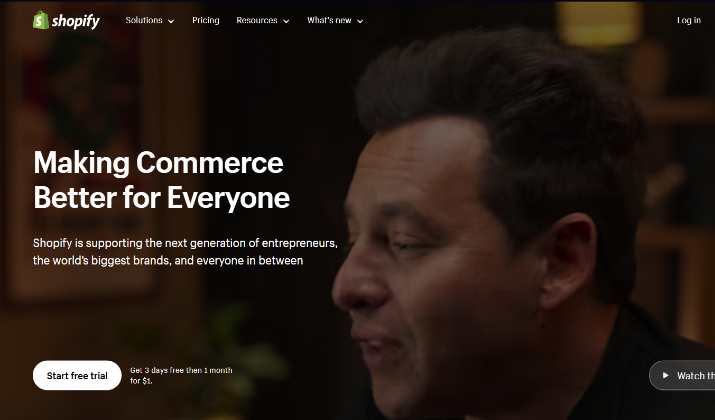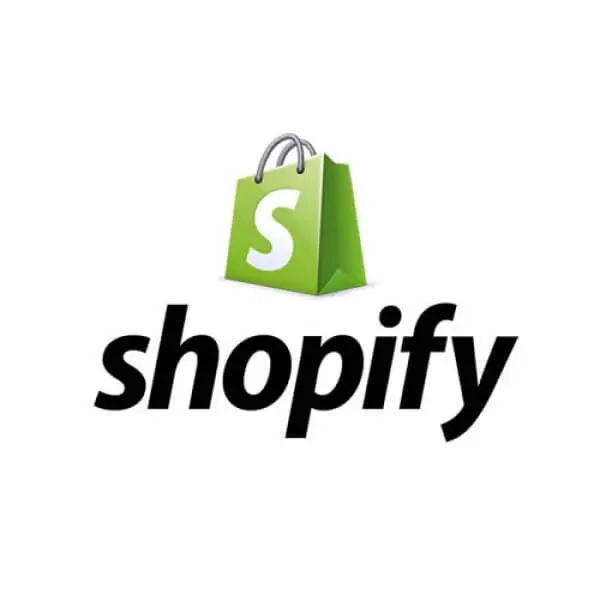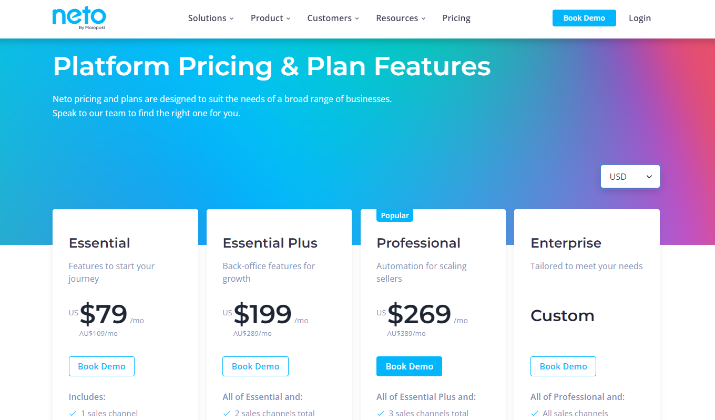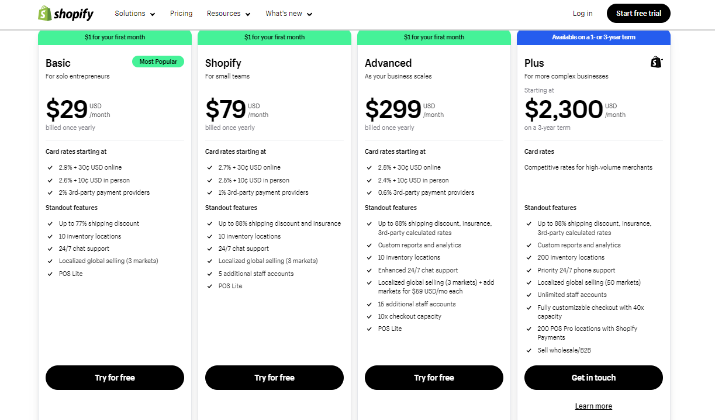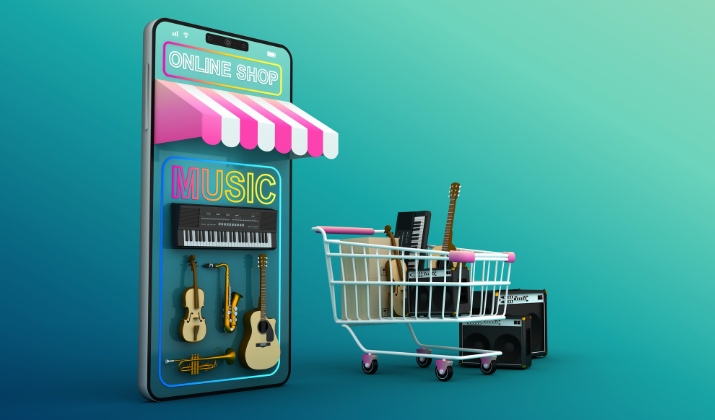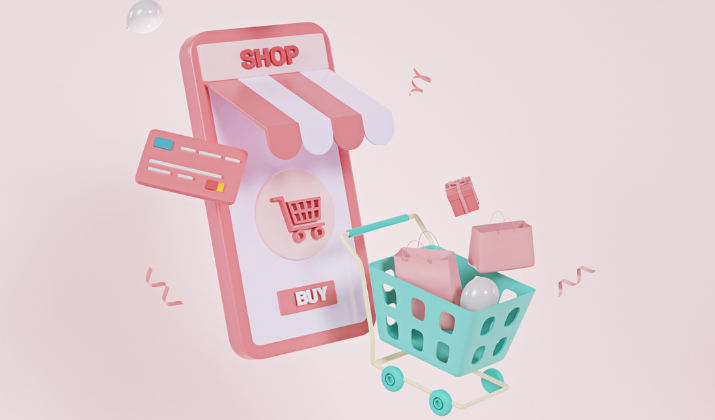As the B2B ecommerce landscape continues to evolve, businesses are faced with a crucial decision – which ecommerce platform will best serve their needs?
Among the most popular ecommerce platforms in recent years is Shopify, powering innumerable stores worldwide. However, a new player has entered the enterprise ecommerce arena – Neto.
So, the question remains: Which is the better choice for your B2B business, Neto or Shopify?
This article will dive deep into a Neto vs Shopify comparison, examining key considerations such as design, mobile responsiveness, payment gateways, shipping integrations, and customer support.
By the end, you’ll have a clear understanding of which ecommerce platform comparison is the best fit for your B2B ecommerce needs.
Let’s begin.
Key Considerations for Choosing an Ecommerce Platform
When selecting an ecommerce platform for your B2B business, there are several critical factors to consider.
- Ensuring a secure shopping cart and PCI compliance is paramount, as it safeguards your customers’ sensitive financial information.
- Additionally, the platform’s scalability is essential, as it must accommodate the anticipated future growth of your business.
- Evaluating the availability of a free trial period is crucial, as it allows you to test the platform’s functionality and suitability for your specific needs.
- Equally important are the pricing plans and transaction fees, which can significantly impact your operational costs and profitability.
- The abundance of professional-looking themes and customization options is another key consideration, as it enables you to create a visually appealing and branded online store.
- Mobile responsiveness is also crucial, as it ensures an optimal user experience across all devices, catering to the growing trend of mobile commerce.
- Furthermore, the variety of payment gateway integrations and robust shipping options are essential for providing your customers with a seamless and convenient checkout process.
- Finally, comprehensive customer support is vital, as it ensures you have the assistance and resources you need to address any issues or questions that may arise.
Read this too: Shopify vs Wix
Overview
Neto
Neto is a comprehensive B2B and multi-channel ecommerce platform that provides an all-in-one solution for online stores, POS, inventory management, order management, and shipping.
It is designed to help businesses manage and expand their retail operations effortlessly. The key features of Neto as a B2B platform include:
- A powerful B2B online store portal for customers to place orders, make payments, track account credit, and manage account details
- A suite of apps for sales reps to write orders, access a digital catalog, inventory, and order history online, at trade shows, or in-person
- Robust end-to-end inventory management (IMS), order management (OMS), and shipping platform that powers all B2B and B2C sales channels
- Ability to expand to new sales channels and reach out to customers who haven’t ordered in years
- Cost savings of up to 70% associated with data entry, catalog printing and distribution, and managing order errors and backorders
Neto distinguishes itself as a feature-rich ecommerce platform with SEO-friendly capabilities, such as customizable URL structures, effective category export functions, intuitive breadcrumbs, and indexable sidebar filters.
It aligns with Google’s Core Web Vitals standards and can handle large category volumes while maintaining a user-friendly interface.
Neto empowers thousands of B2B and multi-channel ecommerce businesses to achieve more by connecting online stores, POS terminals, marketplace connections, inventory, order management, and shipping into a single platform.
Explore: Sellfy Review, Pros And Cons
Shopify
Shopify is a robust platform that caters to businesses engaging in business-to-business (B2B) transactions, offering a wide array of features tailored to enhance B2B operations.
Here are its key features:
- Customizable Pricing and Discounts: Shopify allows businesses to set custom price lists, offer tiered pricing, and create customer-specific catalogs, enabling tailored pricing and discounts based on customer characteristics and purchase volume.
- Bulk Order and Inventory Management: Users can efficiently manage stock levels, track inventory across multiple locations, and process bulk orders seamlessly through Shopify’s integrated order management system.
- B2B Checkout Processes: Shopify facilitates B2B checkout processes, including the ability to add purchase order (PO) numbers to orders and draft orders, streamlining the purchasing experience for B2B customers.
- Integration with B2B Apps: Shopify’s extensive range of B2B-compatible third-party apps enhances B2B operations by providing additional functionalities such as order management, quoting systems, and advanced analytics.
- Dedicated Wholesale Channel: Shopify offers a dedicated wholesale channel within the platform, known as Shopify Plus Wholesale Channel, focusing on features like bulk ordering, tiered pricing, and custom catalogs specifically designed for wholesale customers.
In conclusion, Shopify’s capabilities empower businesses to streamline their B2B transactions, offering a comprehensive solution for managing wholesale commerce and enhancing the overall B2B experience.
Explore: Ecwid vs Shopify
Try Shopify free followed by first month at just $1. No credit card required. Limited Time Offer.
Design & Customization
Neto
Neto’s Customizer settings give you control over various aspects of your website, including color schemes, font choices, and layout.
- You can create unique color palettes that align with your brand identity and fine-tune the appearance of specific sections like the header and footer.
- The theme also provides access to a wide selection of Google Fonts, enabling you to choose the perfect typography for your online store.
- In addition to the design customization options, Neto offers several other features to enhance your B2B experience.
- It includes a seamless WooCommerce integration, allowing you to set up a fully functional online store with ease. The theme is also optimized for performance, ensuring your website loads quickly and provides an excellent user experience.
Explore: Sellfy vs Printful
Shopify
Shopify offers a wide range of design and customization options to help you create a unique and branded online store:
- Shopify has over 100 paid themes and 11 free themes to choose from in the Theme Store
- The theme editor allows you to customize settings, checkout, store design, and more without coding
- Shopify apps allow you to make custom changes like customizing the search bar, filtering, and product recommendations
- The SC Product Options app lets you create unlimited product options fields with conditional logic to upsell custom products
- You can create custom templates in the theme editor
- Metafields allow you to customize products, collections, blog posts, and pages beyond default data fields
- Shopify’s API integrates with your existing systems for streamlined product management
Shopify provides a balance of familiarity and originality, allowing you to create a unique branded store while still being easy to manage.
In contrast, Neto’s theme selection, while functional, is more limited. Additionally, Neto’s theme customization options are more restricted, requiring advanced technical knowledge or the services of a developer.
You might find this useful: Sellfy vs Etsy
Try Shopify free followed by first month at just $1. No credit card required. Limited Time Offer.
Pricing
Neto
Neto offers several pricing plans tailored to different business needs:
- Essential Plan: Priced at $79 per month, this plan brings you basic features to get started on your ecommerce journey.
- Essential Plus Plan: This plan is priced at $199 per month. It includes back-office features for business growth and supports up to two sales channels.
- Professional Plan: Priced at $269 per month, this plan offers automation tools for scaling the business, like low stock alerts and bulk order processing.
- Enterprise Plan: Available at custom pricing, this plan has been designed to meet your unique needs. It offers advanced features such as ecommerce analytics, multiple sales channels, and multi-currency purchase orders.
These plans cater to various business sizes and requirements, ensuring that businesses can choose the plan that best aligns with their goals and growth strategies.
Explore: Sellfy vs Printful
Shopify
Here is a look at the pricing plans from Shopify:
- Basic Plan: Priced at $39 per month (or $29 per month if billed annually), this is the perfect plan for new B2B ventures. The plan offers basic features for starting an ecommerce store.
- Shopify Plan: This plan priced at $105 per month (or $79 per month if paid annually), is a suitable choice for growing online ventures. It offers more advanced features compared to the Basic Plan.
- Advanced Plan: Priced at $399 per month (or $299 if billed yearly), this plan comes with advanced tools and features for fast-growing businesses.
- Plus Plan: This plan costs $2300 per month. It has been designed for enterprise-level businesses with high-volume sales, It offers premium features and services.
These pricing plans cater to diverse business needs. Whether you are a new startup or an established business, you will find the right pricing structure for your needs.
Check out: Shopify vs Dukaan
Try Shopify free followed by first month at just $1. No credit card required. Limited Time Offer.
Mobile Responsiveness
Both Shopify and Neto prioritize mobile-friendly designs, ensuring that their B2B platforms provide an optimal user experience across all devices.
Shopify’s mobile-first approach is evident in its sleek and intuitive mobile interfaces, which are consistently praised by users.
Neto also delivers excellent mobile responsiveness, with its cloud-based platform automatically adapting to different screen sizes and devices.
While both platforms excel in mobile responsiveness, Shopify’s themes are generally regarded as more aesthetically pleasing and user-friendly, potentially giving it a slight edge in enhancing the overall mobile shopping experience.
Also read: Shopify vs Storyblok
Payment Gateway Options
When it comes to payment gateway integrations, Shopify offers a clear advantage over Neto.
Shopify provides an extensive list of over 100 payment gateway options, including major credit card providers and popular payment processing systems like Stripe.
This wide selection allows Shopify merchants to choose the payment options that best suit their target market and business needs, whether they are operating locally or internationally.
In contrast, Neto provides around 10 major payment gateway integrations, such as Afterpay, Zip, and PayPal.
While Neto’s payment gateway options may be suitable for many Australian businesses, Shopify’s significantly larger selection gives it a distinct advantage.
This is particularly true for B2B companies with international customers or those seeking more diverse payment options to cater to a wide range of customer preferences and payment methods.
Read this too: Hostinger vs Shopify
Shipping Integrations
Neto has a strong focus on shipping integrations for the Australian market, with partnerships with AusPost, eParcel, and around 30 other local courier services.
This makes Neto an excellent choice for B2B businesses based in Australia, as it seamlessly integrates with the country’s leading shipping providers.
Shopify, on the other hand, offers comprehensive shipping solutions for businesses in over 175 countries.
This includes dedicated shipping packages for major international markets like the United States, Canada, the United Kingdom, and Australia.
Shopify also provides the ability to print shipping labels directly from the platform, streamlining the order fulfillment process.
Check out: ClickFunnels vs Shopify
Try Shopify free followed by first month at just $1. No credit card required. Limited Time Offer.
Customer Support
Shopify is widely praised for its excellent customer support, offering 24/7 live chat and responsive representatives who can assist with a wide range of issues.
The platform’s comprehensive documentation and community resources also provide ample self-help options for users.
Neto’s customer support is primarily provided through phone and email, which can sometimes be slower to respond compared to Shopify’s live chat.
While Neto’s support team is based in Australia, which may be a benefit for some local businesses, the platform’s overall customer support is generally considered less accessible and responsive than Shopify’s.
Also read: Ecwid vs Squarespace
Conclusion
Shopify’s global reach, extensive app integrations, and superior design options make it a strong choice for B2B companies with international ambitions or a desire for a highly customizable online store.
However, Neto’s focus on the Australian market, seamless shipping integrations, and 0% transaction fees may make it a more attractive option for B2B businesses operating solely within Australia.
Ultimately, the decision between Neto and Shopify will depend on the specific needs and requirements of your B2B business, including factors such as geographic focus, scalability, design preferences, and the importance of streamlined operational integrations.
By carefully evaluating the strengths and weaknesses of each platform, you can make an informed decision that aligns with your B2B ecommerce goals.


